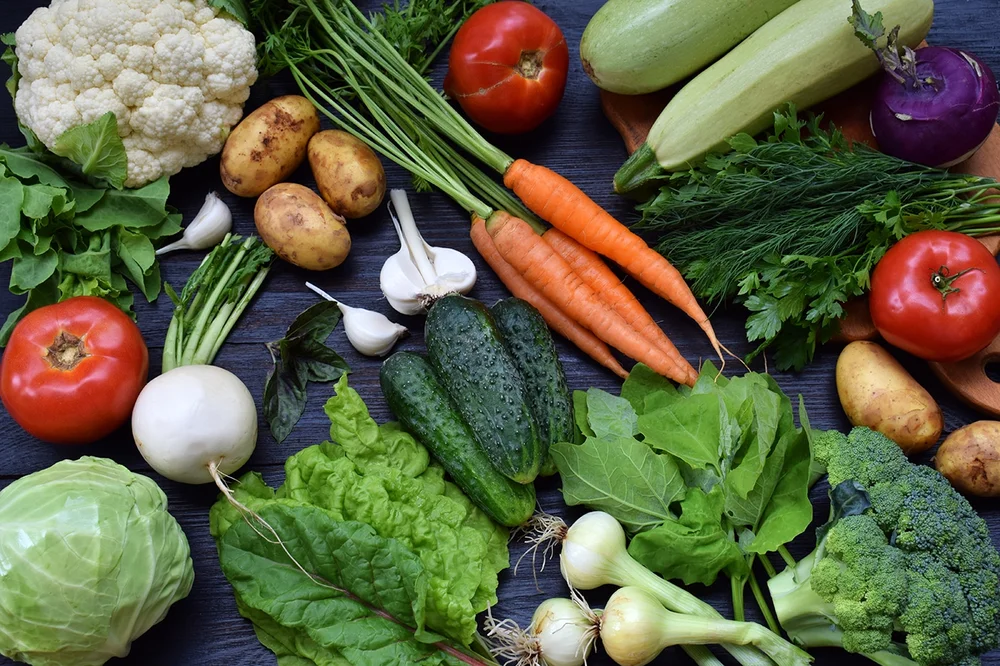This Is the Best Diet for Your Brain
Have you ever struggled to maintain a diet? We’ve all been there.
Maybe you do a good job of staying on your meal plan during the week, but struggle to keep it up during the weekend. Or maybe you feel like you deserve to splurge a little. Or maybe you feel stressed, moody, or lonely, all of which can lead to emotional eating (or overeating).
Even if you occasionally let your diet slip, you don’t have to allow yoyo cycling to ruin your chances of shedding excess body weight and enjoying a more vibrant lifestyle. The ability to sustain a healthy diet starts in the brain.
Your Brain and Food
The brain is your command and control center. It makes either good or bad decisions about the foods you eat. It also tells you:
- What, when, and how much to eat
- What to buy at the grocery store
- What to order in a restaurant
It’s important to identify and acknowledge what emotions are driving you to make bad food choices. Sometimes it isn’t even an emotional trigger, but the sight or smell of unhealthy foods that make you crave them. You can take back control of your cravings by making simple changes to your daily habits.
Here are some simple and thoughtful strategies that can help you establish a brain-healthy diet.
10 Ways to Master a Brain Healthy Diet

1. Feng Shui Your Refrigerator
Don’t let the default arrangement of your refrigerator dictate how you organize your groceries. Instead of storing veggies and fruit in the dark drawer at the bottom of the fridge, where they’re likely to be forgotten, put them in glass containers at eye level. That way, every time you open the refrigerator door, you’ll see the nutrient-dense, brain-healthy foods first.
2. Drink Before You Eat
No, this doesn’t apply to alcohol. Try drinking a glass of water (8-10 ounces) 30 minutes before each meal. This will help fill your stomach before you eat, so you’ll eat less during the meal.
The practice of eating something healthy to boost satiation before a meal has been around a long time – and it still works. Many soup diets and cleanses can help fill you up, creating fewer hunger signals to the brain, which can help you ingest less during meals. Some people may find that broth can satisfy food cravings pre-meals, and help you eat less during the main event.
3. Add Some Spice
Most people get bored eating the same thing day after day. When you bake a sheet of chicken or fish, season each one differently – season one with curry, another with garlic, ginger, etc. This way, each day’s meat will have a different flavor.
Herbs and spices are one of the few food categories that provide both nutrition and flavor. Hippocrates listed over 500 medicinal uses for herbs and spices that included ways to prevent illness and increase longevity. Herbs and spices contain so many health-promoting substances, it almost makes more sense to store them in the medicine cabinet than the spice rack.
4. Mindful Eating
Mindful eating is when you pay attention to what you’re thinking, feeling, and tasting in the moment. This is especially important for people who sit on the couch all day, mindlessly devouring bags of cookies or chips.
By contrast, when you eat mindfully, you pause after each bite of food and become aware of the smells, tastes, and textures. You can learn to savor each bite and experience gratitude for the food you’re eating. Also, mindful eating can help you become more aware of when you feel full so that you don’t overeat.
5. Eat More Vegetables
Research shows that 90% of Americans don’t get the recommended daily servings of fruits and vegetables in their diet. One of the simplest ways to increase your intake of veggies is to introduce them into your breakfasts. Just toss a few handfuls of spinach, kale, or mushrooms into your eggs for a major nutrient boost.
6. Slow Down
Do you often find yourself too busy to eat? Do you skip meals or eat on the go? Even when you have five minutes to sit down and eat, do you still tend to rush through a meal?
Try spending more time chewing. This will allow your stomach to gradually expand and send the signals back to your brain when it needs to turn off the hunger switch. Also, skipping meals is a bad idea – it slows your metabolism, which may cause overeating.
7. Streamline Prep Time
Pick one day of the week to shop for vegetables and nutrient-rich foods to help keep your brain active and healthy. When you get home, spend some time chopping up veggies and storing them in the fridge.
Having veggies ready to go will be a huge help during meal and snack times. You can quickly add them to eggs, salads, and other meals. This will cut down on prep time for all your meals during the week and will help ensure that you actually eat the veggies you purchased.
8. Proper Portions
Get rid of large entrée plates and serve meals on smaller appetizer-size plates (or salad bowls) for better portion control. Try using chopsticks and appetizer-sized cutlery to help you take smaller bites. Also, many stores sell portion-sized plates and Tupperware that can help you adjust the portion size of your meals.
9. Mix It Up
If you pretty much eat the same things every day, you might be missing out on some vital nutrients. The next time you go to a farmer’s market or the produce section of a grocery store, force yourself to try something new. There are a variety of seasonal vegetables and fruits to help you mix things up and eat natural foods from the full spectrum of colors and flavors.
In addition to leafy green vegetables like spinach, kale, broccoli, and collard greens, different colored vegetables, such as red bell peppers, squash, and cauliflower, all have tremendous health benefits. They provide an enormous array of vitamins, essential minerals, free radical-blocking carotenoids, and power-packed flavonoids. These foods not only elevate antioxidant levels in your body, they also have a wide variety of additional health benefits – so always do your best to eat from the rainbow.
10. Take a Breath
If you eat when you’re stressed or worried, it can impair the digestive process and interfere with the absorption of the nutrients in the foods you’re eating. A quick trick to aid your digestive system is to take a few deep breaths before eating.
This easy strategy helps your body create a state of relaxation that prepares your digestive system to release the enzymes needed to break down the foods you’re about to eat, and aid in the absorption of nutrients from those foods. Just take 4 to 5 deep breaths before you start eating and you may find that you’re calmer and better able to enjoy your meal.
These are just a few ways to improve your brain health with nutritious foods. Try them out and feel free to share them with your friends and family.
At BrainMD, we’re dedicated to providing the highest purity nutrients to improve your physical health and overall well-being. For more information about our full list of brain healthy supplements, please visit us at BrainMD.




Thanks for providing such nice information. Really you gave productive information. This is important to rehabilitate an alcoholic or drug addict physically and mentally for long term recovery from addiction. Willpower plays an important role in rehabilitation and a doctor can develop willpower inpatient with counseling. Yes, counseling plays a significant role in addiction recovery because during counseling a counselor tries to make patients believe that they can easily say “No” to alcohol this is not tough for anyone to control their mind. I am also running a rehabilitation center in Boston, Louisville, Oklahoma-city, Indianapolis very we focus more on counseling and the success rate here is very high.